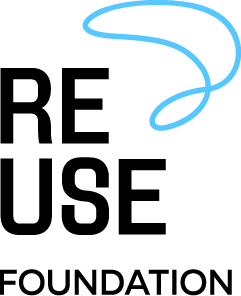Featured
LEVERAGING THE POWER OF INTERNS TO BUILD CAMPAIGNS AND PROGRAMS |
|
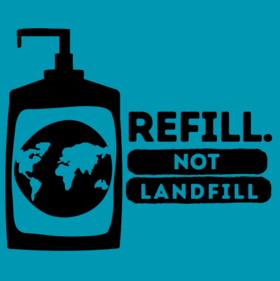
|
This summer REUSE Foundation has about 20 interns working for it, mostly from the universities of Oxford and Sussex, but many others too. They’ve brought time, energy and enthusiasm to support our work and push forward a range of projects. They’re researching and crafting content to raise awareness about the environmental impact of plastic waste, the inadequacy of relying on plastic recycling and potential for reuse to make a difference.
Students and young people generally are very aware of the plastics crisis, deeply cynical about corporate and governmental efforts to abate it, and motivated to help where they can. One group of students is helping develop a programme geared to students worldwide. Called Refill. Not Landfill, the program that is set to launch late this year, will engage student populations in many countries, inform them of the deficiencies of recycling as a policy, make them aware of the benefits of free use and encourage them to undertake a short survey and petition. Read more about this program and follow news on Instagram[Image Credit: © REUSE Foundation] |
Highlights
Court Allows Lawsuit On Plastic Pollution To Proceed |
|

|
Earth Island Institute's lawsuit against major consumer goods companies over plastic pollution has been allowed to proceed by a California court. The lawsuit alleges that these companies, including those producing plastic packaging, have created a public nuisance by misleadingly marketing their products as recyclable while contributing to environmental hazards. This decision marks a significant step in holding corporations accountable for the growing plastic waste crisis affecting California's waterways and marine life, potentially leading to broader accountability for plastic pollution.[Image Credit: © Earth Island Institute]
|
Kérastase Launches Refillable Hair Oil, Elixir Ultime |
|

|
Kérastase introduces a refillable version of its iconic hair oil, Elixir Ultime, marking a significant step in plastic waste reduction. This new sustainable design includes a glass bottle with a gold gradient and an easy-to-use refill system, aimed at minimizing plastic use. The revamped Elixir Ultime features a lighter fragrance and incorporates precious oils for enhanced hair nourishment and protection. The launch is supported by a nationwide "out-of-home" campaign, prominently featuring Global Brand Ambassador Sydney Sweeney, especially in New York City with high-visibility ads in Times Square and SoHo. [Image Credit: © Kérastase / PRFoto]
|
Nestlé’s Shift In Plastic Packaging Goals Highlights Challenges In Reducing Plastic Waste |
|

|
In 2022, Nestlé changed its plastic packaging commitment, pledging to use plastic "designed for" recycling by 2025 instead of solely "recyclable" or reusable packaging. This small rewording results in 280,000 metric tons of additional non-recyclable plastic waste annually. The company expects 63 percent of its packaging will be recyclable, reusable or compostable, compared to 55 percent in 2018. But with the new rewording, it expects 83.5% of its plastic packaging will be ‘designed for recycling’.[Image Credit: © Nestlé ]
|
The Rise Of Refillable Packaging: Benefits and Challenges |
|
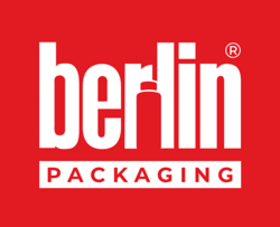
|
Refillable packaging is becoming mainstream, driven by household brands and direct-to-consumer companies. This trend offers significant benefits, including reduced plastic waste, lower carbon emissions, cost savings and improved user experience, fostering brand loyalty. An Ellen MacArthur Foundation study suggests that widespread adoption of refill-at-home packaging could cut new plastic packaging demand by over 50 percent, significantly reducing the environmental impact. Economically, refill pouches lower costs for consumers and companies, enhancing convenience and customization options. Despite these benefits, brands face challenges such as contamination risks, limited packaging materials and the need for substantial investments in new filling lines and supply chain adaptations. Consumer adoption requires significant behavior changes, making flexibility and agility essential. Products in beauty, personal care, home care and food markets are more adaptable to refill-at-home models. Companies must evaluate product-packaging compatibility, target audience, market suitability, innovation potential and operational readiness to determine fit. [Image Credit: © Berlin Packaging]
|
Plastic-Free Laundry Solutions Gain Momentum During Plastic Free July |
|
.jpg?width=280)
|
Laundry detergent manufactures highlighted sustainable packaging options during Plastic Free July. P&G highlighted its Tide evo fiber tiles, a concentrated detergent in a 2x2 inch square that activates in water that it launched in April 2024. These tiles come in recyclable paper packaging and Tide also claims energy savings, as it’s designed for cold-water washing and produced in a renewable energy-powered facility. Meanwhile, Tru Earth offers Laundry Eco-Strips, ultra-concentrated detergent sheets in recyclable paperboard packets. Tru Earth estimates it has eliminated nearly 186 million single-use plastic containers with its eco-strips. The trend, started by Church & Dwight's Arm & Hammer Power Sheets in 2023, signifies a growing shift towards sustainable packaging in the laundry sector. [Image Credit: © Procter & Gamble] |
UN Human Rights Council To Investigate Plastic Pollution's Impact On Human Rights |
|
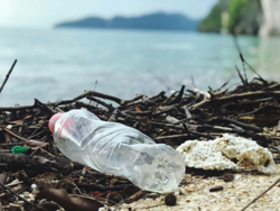
|
The United Nations Human Rights Council has initiated an investigation into whether plastic pollution infringes on human rights. During its 56th session from ending July 12, a draft resolution titled 'Plastic pollution implications on the full enjoyment of human rights' was submitted by Panama, Costa Rica, Ecuador and Peru, with support from France, Israel, Luxemburg and Portugal. This resolution was adopted unanimously by the 47-member Council. The Council's advisory committee is tasked with preparing a comprehensive study on plastic pollution's human rights implications, considering the entire lifecycle of plastics. The study, due in 2027, will incorporate views from various stakeholders, including states, UN agencies, indigenous peoples, civil society and the private sector. This investigation marks the first time a UN body has examined the human rights impact of plastic pollution, a move welcomed by environmental groups advocating for a human rights-based approach to the global plastics treaty.[Image Credit: © Catherine Sheila on Pexels]
|
Enhancing Reusable Plastic Packaging With 3D Technology |
|
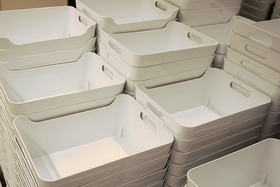
|
At Loughborough University, Dr. Nicola York has leveraged 3D printing and digital visualization to improve the durability of reusable plastic packaging. Using the wireless Artec Leo 3D scanner, Dr. York examined how heat affects the shape of plastic packaging during washing. Transparent plastic packages were coated with a developer spray to facilitate scanning, producing a detailed 3D model. By overlapping multiple 3D scans in CAD software, Dr. York identified deformations caused by repeated wash cycles. This analysis provided insights into enhancing the lifespan of reusable packs in a circular economy. The research, supported by the DigiLabs digital platform, aims to benefit future STEM graduates and inspire new, informed design improvements. A Nordic Co-operation study emphasized the importance of avoiding unnecessary washing in reuse schemes to minimize energy consumption, while a European Commission study confirmed that washing multi-use packaging can be more water-efficient than producing single-use cartonboard, depending on the washing process used. [Image Credit: © Andreas Lischka from Pixabay]
|
Athletes Sign Open Letter To Drinks Giants To Improve Reuse |
|
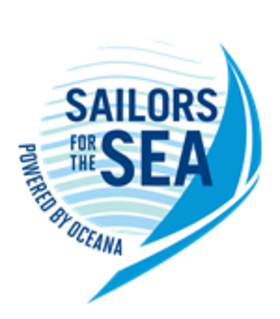
|
102 athletes, including 22 competing at the Paris 2024 Olympic Games, signed an open letter, led by Sailors for the Sea Powered by Oceana and EcoAthletes, along with 11 organizations, asking Coca-Cola and PepsiCo to serve beverages in reusable packaging. The letter, signed by athletes including Alessia Zecchini and Zach Apple, calls for reuse options for all customers globally, a reliance for major sporting events on reusable packaging, and the inclusion of legally binding targets to increase reusable packaging.[Image Credit: © Sailors for the Sea Powered By Oceana] |
Asda Scraps Four In-Store Refill Trials |
|
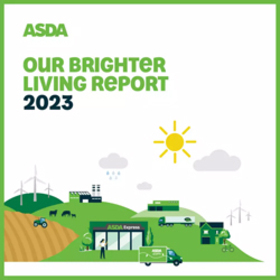
|
In Asda’s latest Environmental, Social and Governance report, the business has revealed that it has scrapped four in-store refill trials, supported by WRAP and IGD, due to low adoption and consumer quality perceptions. Despite successful communication initiatives, consumer uptake was low, and Asda has said that they are planning new refill trials with improved “consumer uptake, operational feasibility and commercial viability”. Amidst this news, the company have highlighted its 7 percent decrease in carbon emissions year-on-year and achieving 96 percent recyclability for its own brand packaging.[Image Credit: © ASDA] |
Companies Backtrack On 2025 Plastic Targets |
|
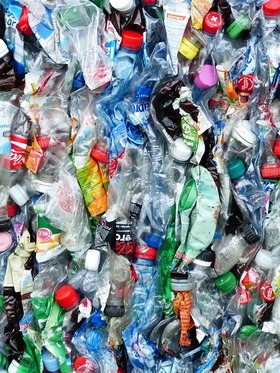
|
Halfway through 2024, organizations are increasingly vocal about their progress towards the 2025 plastics reduction and recyclability targets. Some have admitted to stakeholders that they are behind schedule and unlikely to meet these targets on time; others have revised their goals with new focuses and extended deadlines. Unilever has recalibrated its 2025 plastic packaging targets, raising questions about whether more companies will follow suit. The increased knowledge and resources available to brands and packaging makers today, along with emerging regulations, are reshaping goal-setting. Colgate-Palmolive has indicated potential challenges in meeting its 2025 packaging recyclability target, specifically with flexible bags and pouches. Despite progress in transitioning to recyclable toothpaste tubes, the company faces hurdles, including ongoing litigation. The US Plastics Pact has extended its original 2025 goals to 2030, recognizing the progress made but acknowledging that meeting the initial targets is unlikely. PepsiCo has announced it will probably miss certain 2025 sustainability goals and faces legal action from Baltimore over plastic pollution, and Grove Collaborative has abandoned its plastic-free by 2025 goal, citing the need for legislative changes and significant industry transformation.[Image Credit: © Hans from Pixabay]
|
Germany's Reusable Packaging Revolution: Challenges And Innovations |
|

|
René Heiden's Berlin grocery shop, Samariter Unverpackt, champions reusable containers to reduce single-use packaging waste. This model, gaining traction in Germany, highlights the complexity of finding suitable packaging for various products. Heiden emphasizes the need for diverse container designs to meet consumer convenience and product-specific requirements. Germany, known for its recycling success, excels in reusing packaging, supported by nationwide deposit schemes for beverages like beer, water and milk. Recently, food companies are adopting refill systems for other products. However, the plastic waste issue persists, with Germany producing 64 percent more plastic waste in 2021 compared to two decades earlier. The EU targets a packaging reduction of 5 percent by 2030, emphasizing prevention and reuse over recycling. [Image Credit: © Tima Miroshnichenko on Pexels]
|
Unilever’s CEO Outlines Its Efforts Towards More Sustainable Packaging |
|

|
Unilever is taking sustainable action to make eco-friendly formulations, reduce carbon emissions and create new biodegradable solutions. Unilever’s TRANSFORM initiative supports a range of companies in Africa and Asia testing and scaling new packaging technologies and a focus of this is refillable containers. Additionally, Unilever Home Care is working with partner Econic Technologies, to explore how to capture CO₂ and create usable carbon for use in product ingredients. Unilever is also seeking to use more sustainable packaging and move away from the use of fossil fuels. [Image Credit: © Unilever]
|
Unilever Gets Unwanted Attention From Activists in Jakarta |
|
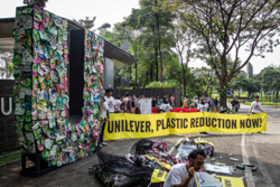
|
Greenpeace Indonesia and Zero Waste Indonesia Alliance held a protest during the Unilever AGM meeting in Serpong, Banten. The focus was on reducing plastic waste, especially disposable. Greenpeace activists in Jakarta also protested by returning over 1000 pieces of branded plastic to Unilever headquarters, to force accountability for the company’s plastic waste. [Image Credit: © Greenpeace Indonesia] |
BNP Paribas Asset Management Sees Investment In Recycling As Key To Plastics Crisis |
|
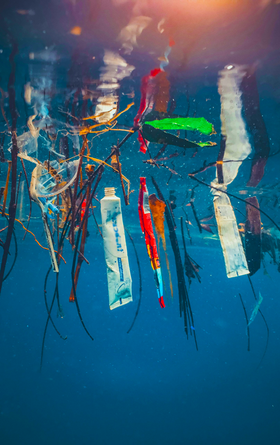
|
A report from BNP Paribas Asset Management takes a look at plastic production and waste, and their impact on the world. It highlights annual plastic production regionally from 1980 to date, and forecasts to 2060, based on OECD data.
It also shows that, for the US, very little is recycled, varying by plastic type from 17 percent of PET and 9 percent of HDPE, to less than 1 percent of PVC. Plastic has been used commercially for almost 120 years and at scale since the early 1950s. About half goes to landfill and a significant amount is “irresponsibly discarded” and leaked into the environment. At least 8 million tonnes of plastic ends up in ocean waters each year, and unless plastic consumption and behaviour improves markedly, there will be more plastic than fish in the ocean by the end of the century. Some statistics about the size of the problem include: 1,500 plastic bottles are thrown away every second and over five trillion pieces of plastic reside in oceans. Plastic pollution causes substantial harm, through air pollution from incineration, microplastics in sea spray and dust in cities. Plastics enter fresh and marine ecosystems via stormwater runoff, sewer overflows, litter and other routes. They might be in their original form or become microplastics (<5mm) and nanoplastics (<100nm), and can be ingested by marine life, or suffocate and entangle marine animals. The impact on soil health is also being increasingly understood, and recent research shows that agricultural soils face higher amounts microplastics than oceans, causing problems with soil aggregation, water holding capacity, microbial activity and toxicity. Its impact on wildlife is broad, including affecting natural habitats, through animals ingesting plastic, inadequate absorption of nutrients for plants, entanglement and injury, genetic mutations and possible effects on reproduction. Issues affecting human health include endocrine disruption and insulin resistance, reproductive health, cancer, weaker immunity and lung irritation. Plastics’ impact on climate change is also being recognized. Incinerated plastic reportedly generated almost 6 million CO2e in 2015 in the US alone and is forecast to grow to 49 million per year by the end of the decade. Landfill generates emissions, although less than incineration. Plastic production adds to global warming. In the US, it creates 232 million metric tons of greenhouse gases each year, and this will exceed emissions from coal-fired generation plants in the country by 2030. BNP Paribas focuses attention almost solely on recycling as a solution to the problem, in investing in more recycling infrastructure whilst acknowledging constraints from feedstock security and economic viability. It mentions alternative plastics and bioplastics but does not mention reuse and refill.[Image Credit: © Naja Bertolt Jensen from Unsplash] |
Scaling Refill Solutions: Insights From The TRANSFORM Initiative |
|
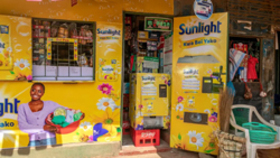
|
The TRANSFORM initiative, a collaboration between Unilever, the UK’s Foreign, Commonwealth & Development Office and EY, supports SMEs and entrepreneurs in tackling plastic pollution through innovative packaging models. TRANSFORM aims to reduce virgin plastic use by promoting reuse and refill solutions, particularly in Africa and Asia. Key insights from four enterprises—Alner, Bopinc, Novek, and Refillable—highlight the challenges and opportunities in establishing these models. Refill solutions require partnerships with retailers and consumer behavior changes, with initial uptake often slow. Successful models prioritize suitable products for quick launch and scaling, offering long-term cost savings for both brands and consumers. Consumers prefer functional packaging for home care products but seek aesthetically pleasing packaging for personal care items. High-tech refill machines ensure product quality but are costly and complicated, whereas low-tech solutions are easier to scale but vulnerable to tampering and regulatory issues. Building consumer trust is crucial, achieved through strategies like sampling and product traceability. Store owners play a pivotal role in promoting refills, and local community champions can accelerate adoption by educating consumers on environmental and cost benefits. [Image Credit: © Unilever]
|
VIP Rewards For Recycling Plastic Bottles At UK Attractions |
|
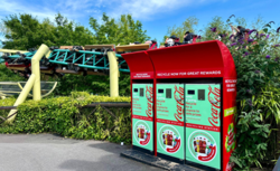
|
This summer, visitors to Merlin Entertainments UK attractions can win exclusive VIP experiences by recycling empty 500ml plastic bottles in designated reverse vending machines. Running from July 1 to September 6, 2024, the initiative encourages guests to recycle in exchange for prizes like behind-the-scenes tours at Warwick Castle, VIP circus experiences at Blackpool Tower and climbing Thorpe Park’s tallest rollercoaster, The Swarm. The vibrant vending machines are available across 11 popular attractions, including Alton Towers, LEGOLAND® Windsor and SEA LIFE aquariums. Guests can locate these machines through staff or the attraction's app. Each recycled bottle earns an entry to win the VIP prizes via a website link provided on the recycling receipt. Partnering with Coca-Cola for the third year, Merlin aims to raise awareness about plastic waste reduction and promote recycling. Coca-Cola Europacific Partners supports this initiative as part of its broader commitment to a circular economy, with 500ml bottles now made from 100% recycled plastic. [Image Credit: © Coca-Cola Europacific Partners]
|
Unilever's Strategy To Reduce Plastic Waste |
|
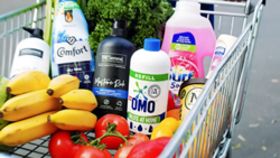
|
Unilever in Australia and New Zealand says it’s committed to reducing plastic waste by using less, better or no plastic. Key strategies include: Better packaging, including using recycled plastic; less plastic, with innovations such as Omo Dilute at Home and Dove Body Wash Refill; eliminating plastic, including replacing plastic scoops with bamboo fiber scoops in laundry powders; and minimizing plastic waste in promotions, replacing plastic-heavy displays with recyclable cardboard, cutting 6.5 tonnes of plastic annually. Collaborative efforts include supporting the National Plastics Recycling Scheme and partnering with Coles and Clean Up Australia to promote recycling. Globally, Unilever is part of the Business Coalition for a Global Plastics Treaty, aiming for a circular economy where plastic waste is eliminated.[Image Credit: © Unilever]
|
SC Johnson’s Method Brand Uses 100% Recycled Coastal Plastic Bottles |
|

|
Method is making all its clear plastic bottles from recycled recovered coastal plastic, sourced through a partnership between SC Johnson and Plastic Bank. To date, the SC Johnson and Plastic Bank partnership has recovered the equivalent of 3 billion bottles that are recycled and turned into consumer product packaging.[Image Credit: © PRNewsfoto/method]
|
Biffa Report Highlights Role Of Circularity In Reducing Plastic Waste |
|
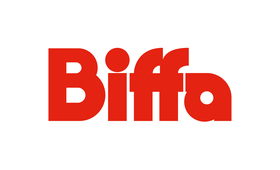
|
Standardizing plastic packaging materials across the UK could divert up to 0.8 million tonnes of plastic waste from landfills by 2029, according to Biffa's report, “The UK Journey to Circularity.” This involves designing products for easier recycling by using consistent materials, such as clear caps on bottles, which reduce contamination and facilitate recycling of both bottles and caps together. The report outlines a nine-point plan with achievable timelines for businesses, consumers, and the government. Key strategies include: Extending the Plastic Packaging Tax by increasing the mandated recycled content from 40 percent to 75 percent; a shift towards reusable packaging; 'consumer pays' schemes to incentivize responsible waste management; and investment in non-mechanical recycling technologies. Carla Brian, head of Biffa Project Partnerships, emphasized the need for new infrastructure and government legislation to support these changes. [Image Credit: © Biffa]
|
New Report Highlights Potential For Lawsuits Against Plastic Companies |
|
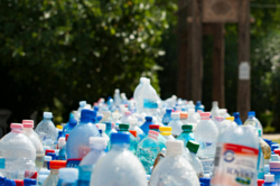
|
New research from the Center for International Environmental Law has detailed the burdens of plastic pollution of US cities and states and argued that plastic producers may have broken numerous laws. With Baltimore filing a claim against plastic manufacturers, the report has detailed how plastics companies knew the damage their products would cause and misled the public. Even today, plastics groups use Facebook advertising to get individuals to oppose anti-plastic measures. The Making Plastic Polluters Pay report exposes the impact on cities and states as well as equipping them with legal tools to hold plastic producers accountable.[Image Credit: © Mali Maeder from Pexels]
|
Evian Offers Water Refills At Wimbledon |
|
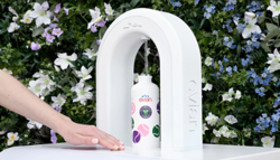
|
Following a successful pilot last year offering refills to tennis pros, Evian has piloted a £5 QR code at Wimbledon Tennis Tournament allowing fans to refill their water bottle at designated refill stations. Free tap water refills were also available, alongside a limited-edition Evian refill bottle available for £25, with refill stations found in six locations across Wimbledon for Evian’s first public refill scheme.[Image Credit: © IBM Corp., AELTC / Danone S.A. ]
|
The EU Single-Use Plastics Directive Alters Packaging Plans |
|
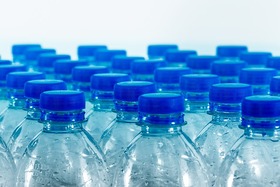
|
On 24th April, the European Parliament adopted the Packaging and Packaging Waste Regulation, amending the existing Single-Use Plastics Directive. This includes requiring beverage manufacturers ensure plastic caps attached to bottles, altering the definition of composite packaging to remove an exemption for packaging containing less than 5%, restricting single-use plastics in the hospitality sector, adding extended producer responsibility schemes obligations, and pushing companies to invest in R&D to comply with new regulations.[Image Credit: © Willfried Wende from Pixabay]
|
City To Sea Calls On Parties For Legally Binding Reuse Targets |
|

|
Charity City to Sea released an open letter to the Conservative, Labour and Liberal Democrat parties - backed by 35 NGOs, brands and celebrities - calling for a commitment to decrease reusable packaging. It calls for “legally binding, time-bound targets” including 30 percent of packing to be reusable by 2030 and a national transition to reuse and refill systems, with CEO Jane Martin calling for “a complete ban on single-use packaging”.[Image Credit: © City to Sea] |
